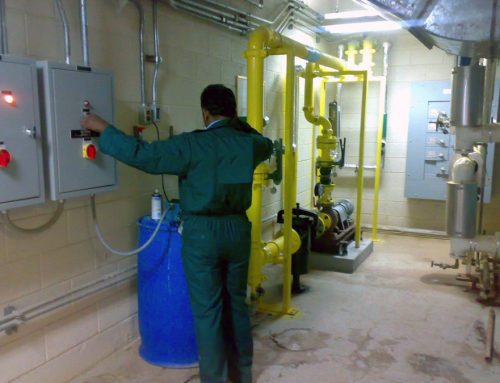In an Expert Focus article for Waterbriefing, Richard Leighton, Chief Engineer at Atkins, explores how to strengthen water resilience in the UK and how to overcome a number of engineering and chemical challenges.
Richard Leighton: In May of this year, OFWAT produced ‘Water 2020: our regulatory approach for water and wastewater services’, a report setting out its shared vision for the water sector across England and Wales. For me, there was a clear step change in the emphasis, with a commitment that the new regulatory approach would help secure a resilient future for water through a more efficient use of ‘scarce resource’ and the provision of essential services which are ‘resilient and can recover from shocks’.
Having worked for several decades on projects that were driven in part by the need to ensure resilience, I find it extremely encouraging that resilience is now high up on OFWAT’s and, Water UK’s agenda. OFWAT is seeking to address the impacts of climate change and population growth, by setting out its own road map for developing regulation. For example, it is reassuring to see that OFWAT is seeking to drive up-stream competition and break down barriers optimising the utilisation of scarce water resources.This will, for the first time, incentivise the transfer of water between companies.
Why don’t we have a national grid for water?
Comparisons are often made with power, which raises the challenge, “Why don’t we have a national grid for water as we do for power?”
OFWAT is seeking to address the regulatory aspects, but there are also engineering and chemical barriers to overcome. Water is dense, making it extremely difficult and costly to move large quantities around the country. Unlike electricity, water from different sources varies in taste, and changing or mixing water from different sources which can lead to customer complaints. Added to this, the quality of water deteriorates over time as it passes through the piped network.
However, the need for greater flexibility to transfer water around the country is growing. We are currently completing work for Water UK to consider the impact of climate change over the medium term on resilience taking population growth into account. The indications are that ensuring resilience is going to be a growing challenge. The Abstraction Incentive Mechanism seeks to ensure that the volume of water abstracted at any time, takes account of the impact on the environment at that time, and this further complicates the control of water resources.
Possible we will move closer to a national integrated network over next decade
So what does this mean for the future of our water supply system? Over the next decade, it’s possible we will move closer to a national integrated network. There will be more transfers across company boundaries, and also increased flexibility in operation. Water abstractions from individual sources will vary in response to environmental conditions and this will have knock on effects across the supply network. The need to provide resilience is there and the regulation is changing to incentivise this.
Over the last decade we have made significant progress in understanding water quality and the control of networks, and have implemented control methods that allow an integrated network to be operated in a flexible manner.
For example, Wessex Water is creating its water supply grid to ensure resilience for the next 25 years whilst addressing significant environmental challenges. The grid includes 24 new pumping stations, 12 new storage tanks and 200km of new pipelines and will enable water to be moved from areas of surplus to areas of a deficit. This will provide a flexible system and as a result will need to operate in a number of different modes.
We have assisted Wessex Water to develop with Servelec Technologies a Pump Optimisation system that will enable this complex system to be controlled effectively, allowing it to adapt to both planned and unplanned events and ensure optimum operation. One of the challenges is to make sure the network can be called upon to transfer water in different directions when needed. A key aspect of the Optimiser is therefore to ensure that conditioning flows are scheduled.
Severn Trent’s Birmingham Resilience scheme is also paving the way in terms of large scale water transfers. The Elan Valley Aqueduct provides Birmingham’s residents with a water supply from Welsh hills, and is now over one hundred years old. The Aqueduct is in need of repair, and the resilience project will provide an alternative source of water during maintenance periods, and is expected to be used for up to 50 days every other year.
I believe three key components are now coming together to drive a more flexible and integrated water supply system for the UK. Regulation is changing to break down the barriers to sharing water resources and drive greater flexibility in their use. We are now able to solve the water quality and control challenges associated with more flexible and integrated transfers. Finally, the impact of Climate Change and population growth mean we cannot afford not to adapt and face up to this challenge.
Published by Waterbriefing.





Recent Comments